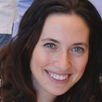Words that Heal and Unite: Remembering Nelson Mandela's Historic Inauguration

Just a few moments are all that is needed to change life as you know it. The inauguration of Nelson Mandela, on this day in 1994, as the first black president, was one of those moments for me. It was not just because of his history, his legacy, his incarceration, his skin colour – it was mostly because of his incredible capacity for humanity.
I was just a student at the time of the first democratic elections. I was overseas, but still managed to cast a ballot alongside thousands of other expats who all turned up to make South African history. At the time of the election I was 18 years young, but the backdrop of my childhood was apartheid. Brought up in a liberal and anti-apartheid family, in the protective cocoon of the Jewish community, we were taught to eschew and condemn the tenets of this 'legalised' racism. But, outside of the cocoon, I can still remember, the 'whites only' benches and entrances. I can still recall the fact that the beautiful beaches were not 'open' to people of colour. I can vividly recollect driving past the sprawling townships, with their dilapidated shacks and shebeens. When I think back to that now, I still can't believe that it was actually real.
So flash forward to 1994, and the apartheid regime is being eradicated, piece by piece. Mandela is about to be sworn in, and together with the elation of this new and better future, there is a deep-rooted fear. It is not spoken about so openly, because it is shameful to admit. How can this man, this new leader of millions of people, who spent 27 years of his life as a political prisoner, not hold the past against the minority? How will he be able to represent all the people, some of whom were complicit in enforcing the regime of prejudice and hate? It didn't really matter that in my direct circles I didn't know anyone who supported or enforced Apartheid. White skin was all that you needed to feel the guilt of the oppressors.
And then Mandela spoke, and amongst his words, he said:
"The time for the healing of the wounds has come.
The moment to bridge the chasms that divide us has come.
The time to build is upon us.
We have, at last, achieved our political emancipation. We pledge ourselves to liberate all our people from the continuing bondage of poverty, deprivation, suffering, gender and other discrimination."
And:
"We enter into a covenant that we shall build the society in which all South Africans, both black and white, will be able to walk tall, without any fear in their hearts, assured of their inalienable right to human dignity - a rainbow nation at peace with itself and the world."
I am a writer. Words are very significant to me. I pay attention to the words that are chosen, as well as the words that are not chosen. I look out for the manner in which they are strung together, beaded, like a bejewelled necklace.
What I heard on that day were words of hope, inclusion, and tolerance.
What I heard were words of healing, unity and dignity.
What I heard was an invitation to build and to rebuild; to plant and to grow.
What I heard was an opportunity to set the slate clean, and to start again.
It only takes a few moments for something significant to change life as you know it. On this day, over twenty years ago, even the child that I was then, could recognise the greatness of the moment, and the greatness of the man, Nelson Mandela.




